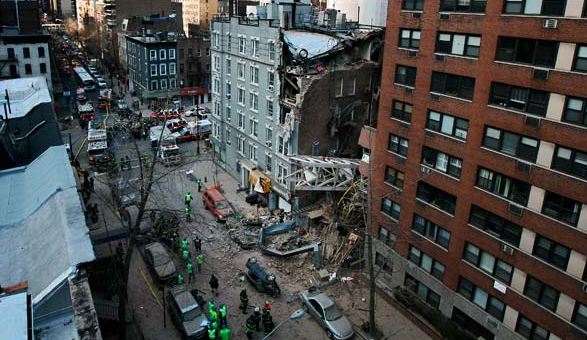Adam Leitman Bailey, P.C. Lands Largest Settlement in New York History for a Restaurant Opened Less Than Seven Months

Restaurant Negotiates Deals Of $2.5M in Crane Collapse
By Jeff Storey
June 29, 2016
Owners of a recently opened restaurant shut down when the collapse of construction crane heavily damaged its building have won almost $2.5 million in settlements.
The incident occurred on March 15, 2008 at 303 East 51st St. where a condominium was being built. Along with property damage, seven people were killed, and more than a dozen injured.
No one was injured at the Crave Ceviche Bar at 944-946 Second Ave. and 301-303 East 50th St., but it was forced to close. The restaurant settled with its landlord in late 2008 for $1.2 million as compensation for the its leasehold interest.
Adam Leitman Bailey, PC, Crave Ceviche’s attorneys, also sued the crane operator, contractor and owner of the condominium under construction. Earlier this month, after several years of litigation, the firm negotiated a separate $1.3 million settlement to compensate its client for loss of future business profits.
Bailey said in an interview that the amount of the combined settlements was unusual because the restaurant had only been open for seven months when the crane fell on its building. It had not yet broken even.
But the above New York Law Journal article did not tell the entire story. Numerous court victories needed to happen to allow for these settlements to occur.
First, soon after the crane fell, the building owner/landlord sent out eviction notices claiming that because the building suffered a casualty, the lease could be terminated. By evicting the commercial tenant, the landlord could sell the building to the developer at a premium so it could build a larger complex. Adam Leitman Bailey sued for an injunction stopping the evictions and asking for a declaration that no casualty existed and therefore stopping the termination of the lease. After oral argument, the judge agreed, finding against the landlord and signed an injunction stopping the evictions.
This court victory forced the landlord to pay the restaurant to give up its lease leading to the first settlement.
At stated in Time Out Magazine:
“We knew we needed a strong and influential law firm and we needed one quickly. We interviewed many attorneys. Somehow, Adam Leitman Bailey, P.C. stopped the eviction. They even won an injunction not only stopping the eviction but also the demolition of the building. Because we had won the injunction, the developer bought our lease at a number we could not refuse.
Our landlord attempted to evict us, Andreakos tells us, ‘on the premise that the building had to be knocked down and rebuilt from the damage of the crane.’ With the help of law firm Adam Leitman Bailey, the owners were “able to force a settlement” and give the Crave team “a chance to open in another location.” Having reached the settlement in October, the team’s focus is now on reopening.”
Next Adam Leitman Bailey went after those entities that caused the restaurant to close. These entities had insurance companies representing them so our goal was to find out how much money was left in the pot for us to after. Ergo, we sued to unseal settlement documents paid to others in the case. Winning at the trial level and on appeal, the court ruled:
“A unanimous panel of the Appellate Division, First Department, yesterday upheld a lower court’s decision to unseal settlement documents stemming from the 2008 collapse of a construction crane that killed seven people. The panel ruled in Squeri v. East 51st Street Development, 117452/08, that Manhattan Justice Carol Edmead properly exercised her discretion when she unsealed the documents even though one wrongful death action from the accident remained pending.
The panel held that there had been no showing of the required good cause for continued sealing of court records. It pointed out that courts must “consider the interests of the public as well as the parties in determining whether good cause has been shown.”
Next we demonstrated the restaurant’s potential in making money if it had stayed open by using many methods including following the profitability of the star chef at the restaurants he worked at after the accident.
After long and heated negotiations, the plaintiff received almost 2.5 Million in settlements.
Colin Kaufman, a partner in Bailey’s firm, also worked on the case.
